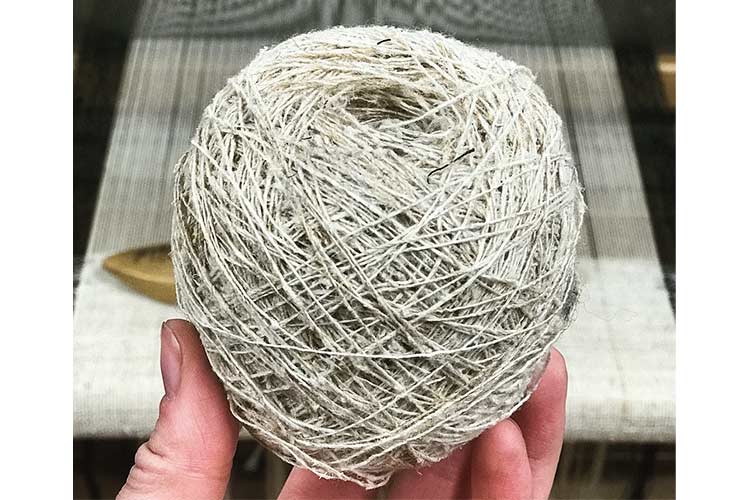
Digging in the dirt: Praxis Fiber Workshop to add natural dye garden
On Saturday, Praxis Fiber Workshop welcomed local volunteers to help with the inaugural planting of a new natural dye garden at its Collinwood-based facility at 15301 Waterloo Road.
The quarter-acre garden will eventually consist mainly of 3,000 indigo plants, says Praxis executive director Jessica Pinsky. Although it looks like basil while growing, the plant is most commonly used as a natural way to dye blue denim.
Pinsky says most indigo dyes today are made synthetically. “Denim is one of the worst polluting industries in the world,” she says. “Natural dye is really important to raise awareness of how to do it in a safe way.”
Marigolds and amaranth—which create natural shades of yellow, red, and blue—will also grow along the perimeter of the garden. The workshop will then use the dye created from those plants to create natural dyes for the textiles they create.
The Cleveland Seed Bank provided the indigo seeds and started growing the seedlings a month ago. “It’s been really fun to see the seeds grow,” says Pinsky.
Pinsky says indigo has a rich history in world trade, with a somewhat controversial association. “The history of indigo in our country has been problematic,” she says, “because indigo came to the U.S. through Africa during slavery.”
But Pinsky says she is hopeful that by creating this garden in the Collinwood neighborhood, a sense of community will bloom. “This will be fair and safe and inclusive to everyone,” she says of the dyes that will be created. “I want this to equalize the social divide, the racial divide, the socio-economic divide.”
Furthermore, Pinsky says the act of growing plants for dyeing textiles is a universal one. “Fiber arts are accessible because everyone wears clothes and sleeps under blankets,” she explains. “This is very approachable to everyone. We wanted to go deeper in the community and have something the residents can participate in.”
In addition to establishing the Natural Dye Garden, Praxis has partnered with the Urban Lambscape Project—where sheep replace lawnmowers—to use their wool and teach kids about brushing and shearing the wool for textiles. “They’ve been contacting us for years, because they have all this wool,” says Pinsky of the Urban Lambscape organizers.
Praxis came to the Waterloo Arts District in June 2015, after the Cleveland Institute of Art announced it was closing its fiber department. Pinsky, who was an instructor at the school, suggested taking the equipment and moving it to a facility where the community could learn about textile arts, and CIA students could earn credit at the same time.
Today Praxis has 25 looms and dyeing capabilities in a commercial workshop space, as well as a street-facing seller and showcase space. Praxis teaches 30 to 40 classes and workshops a year in fiber arts.
A community planting was held on Saturday, May 19, and will be followed by a grand opening for the garden and “meet the sheep” event on Friday, June 1.
“People have been unbelievably excited about this,” Pinsky says. “I’m excited, too.”



